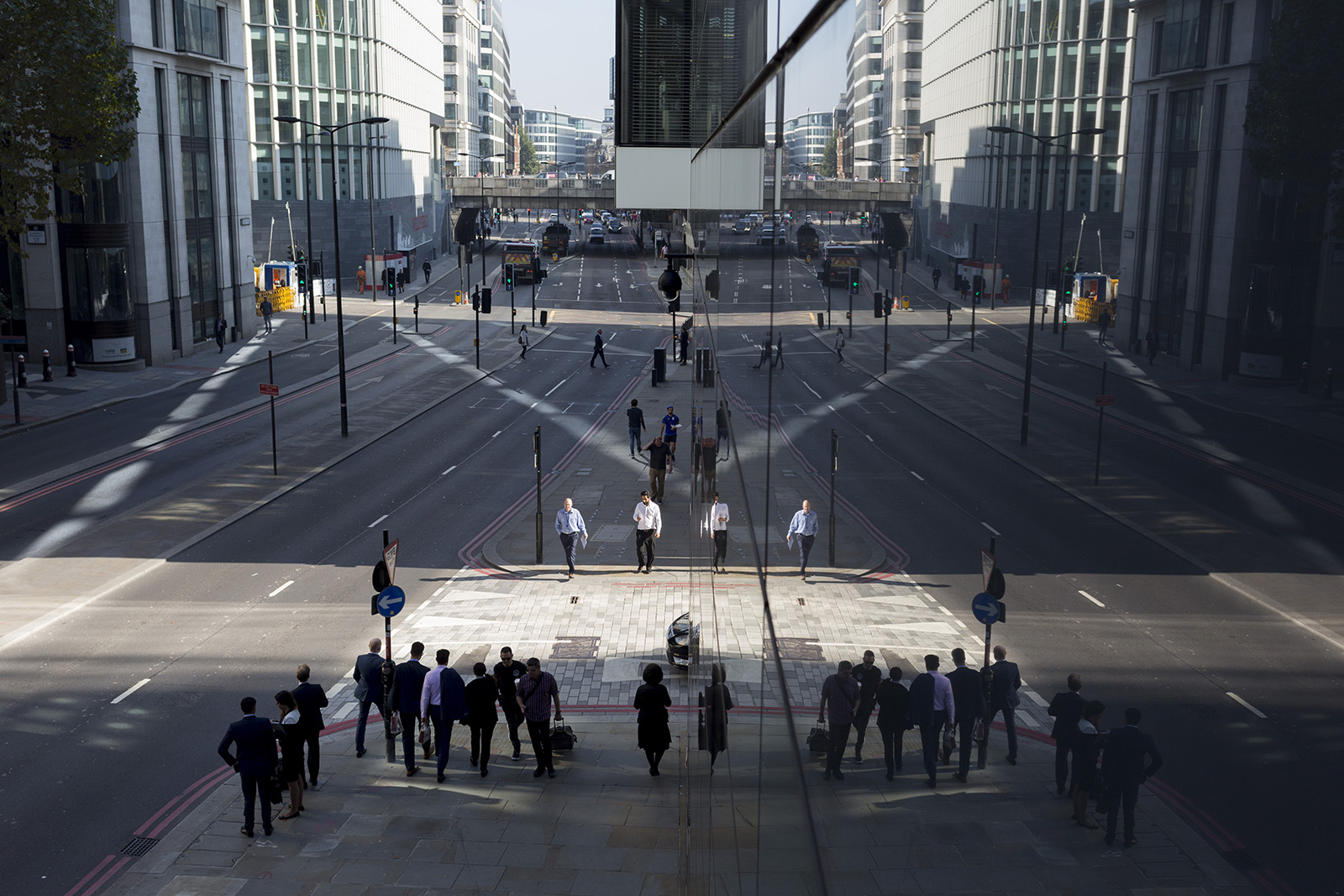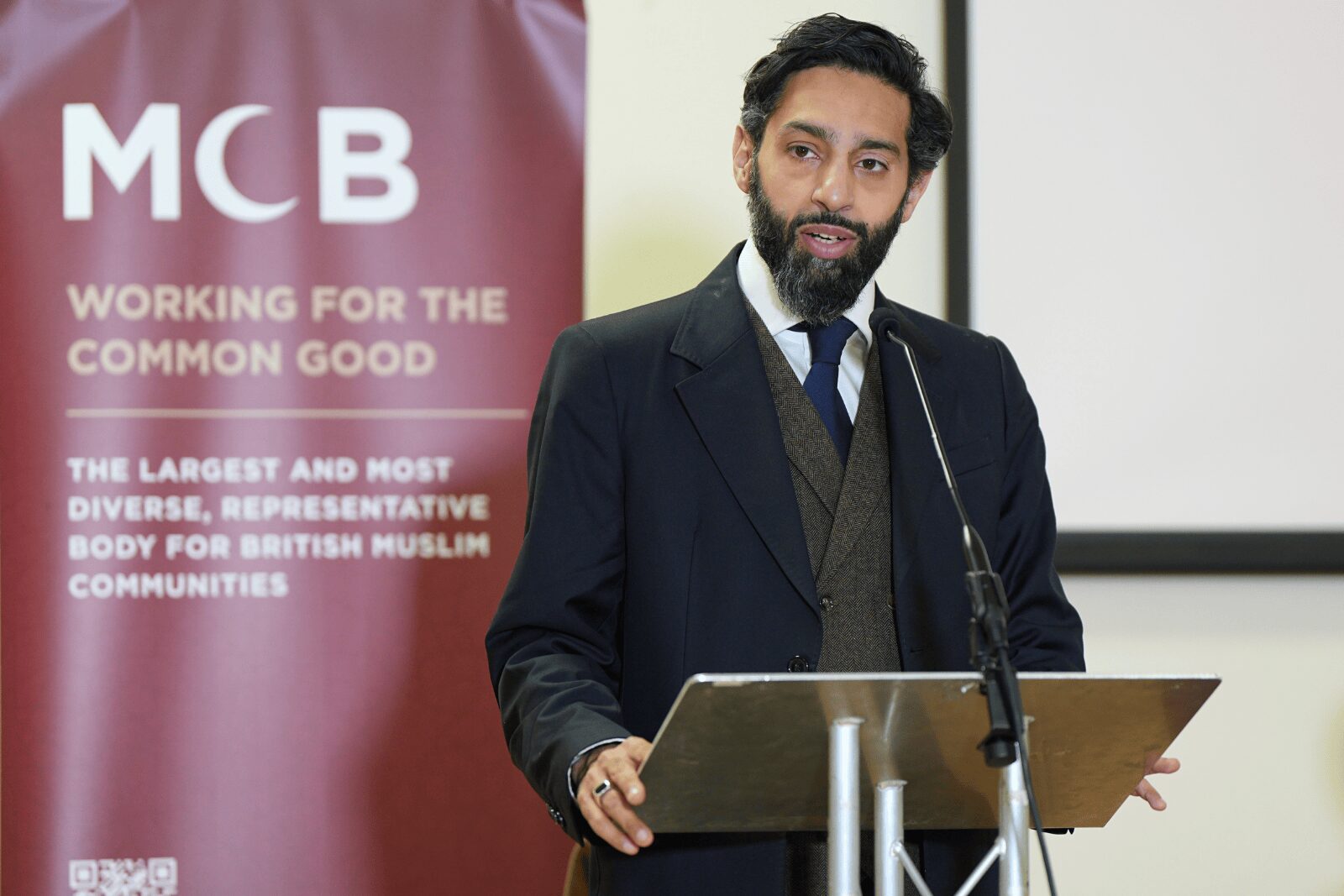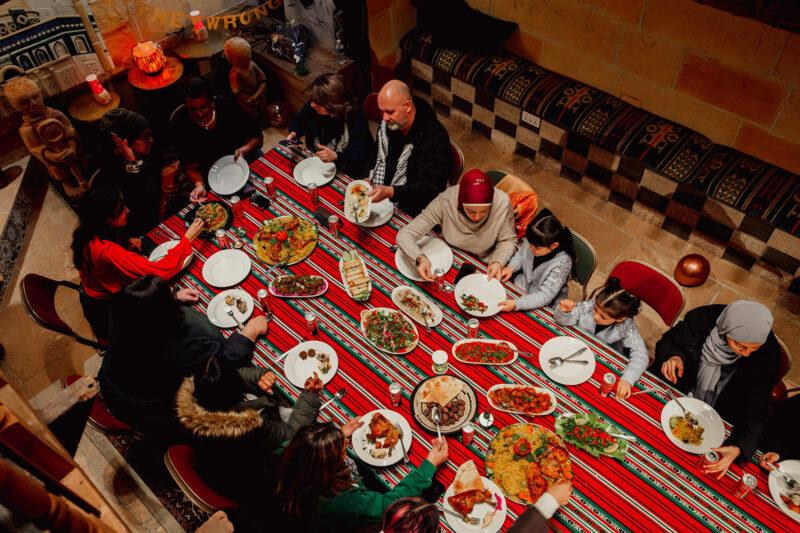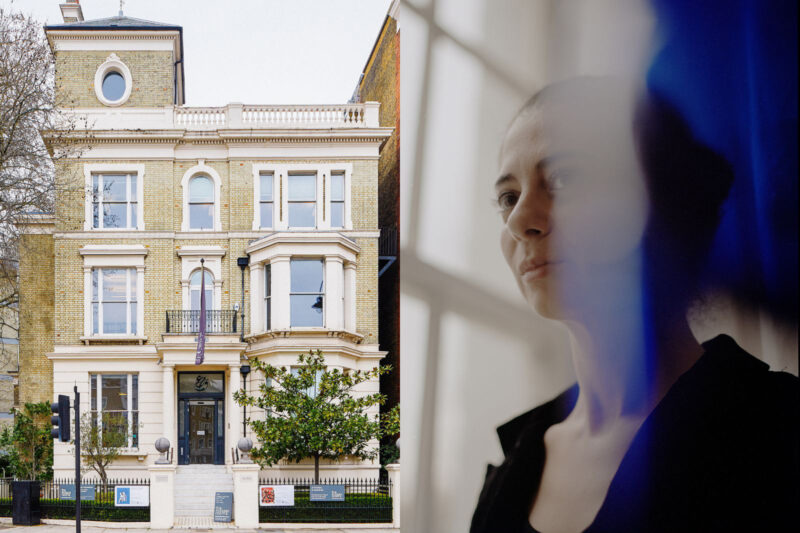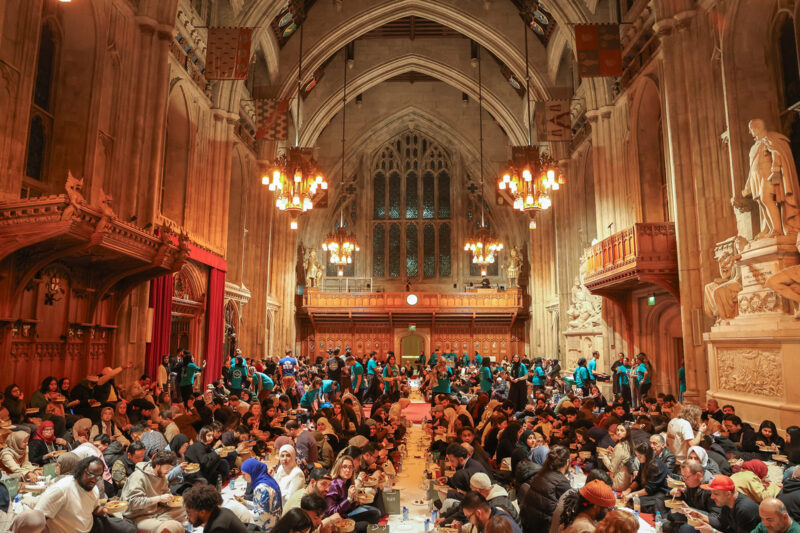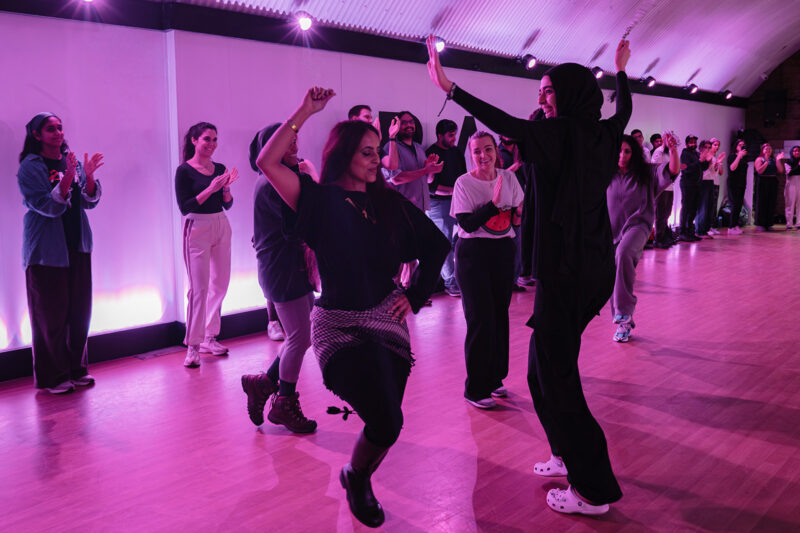Social media on agenda as young people meet Muslim Council of Britain
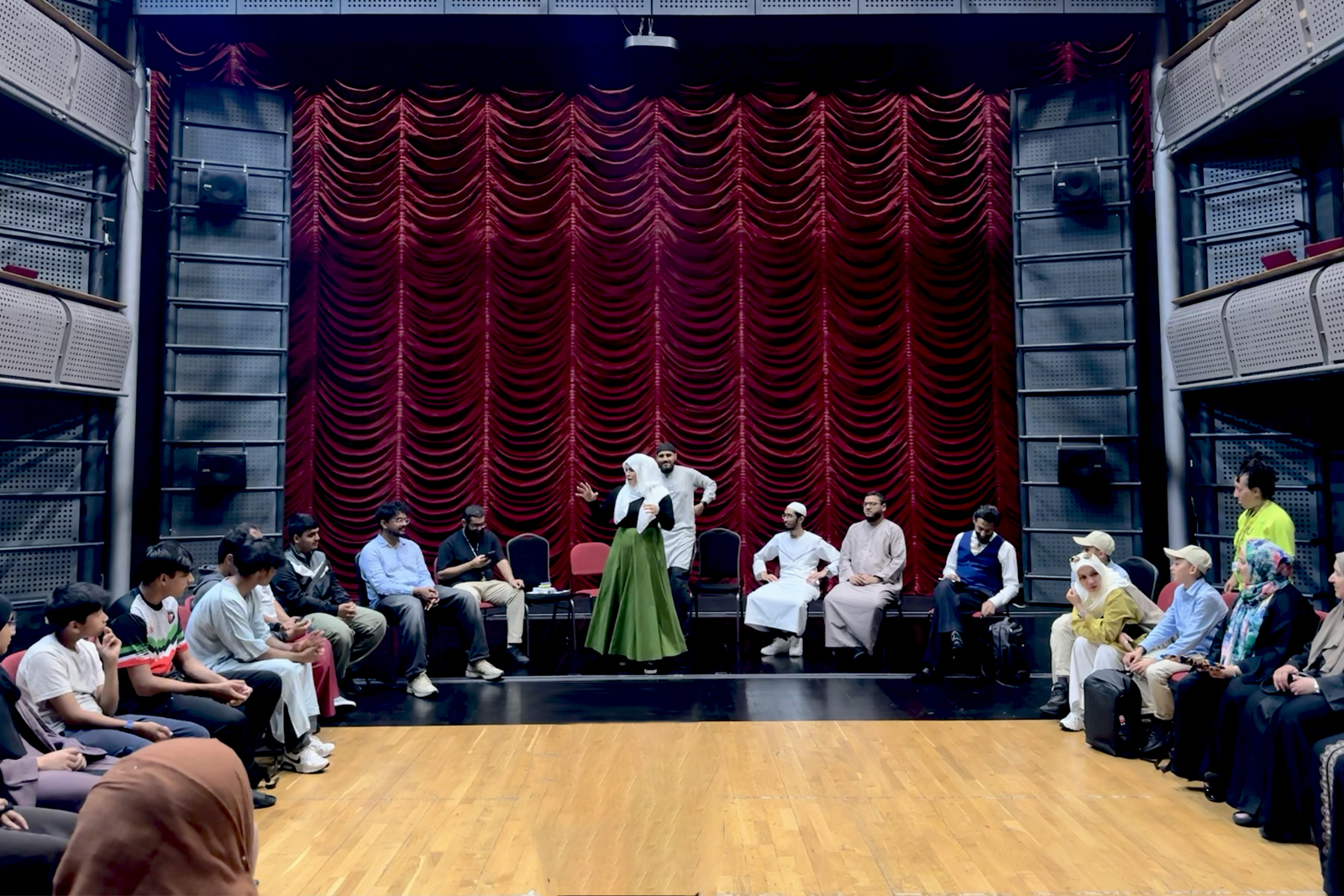
The largest umbrella group for British Muslims is running a town hall tour for its new secretary general Dr Wajid Akhter to meet communities across the UK
Young Muslims and their parents met leaders from the Muslim Council of Britain (MCB) at a town hall meeting on Monday to discuss issues facing Muslim youth — with the goal of informing the MCB’s future work.
It was one of a series of “listening events” staged by the MCB across the UK following the election of Dr Wajid Akhter as secretary general in January, and the eighth aimed at young people, according to the event’s chair and MCB regional lead Zahra Hanif.
Roughly 25 participants, evenly split between young people and older community members, had the opportunity to share their views regarding the lives of Muslim youth in small groups.
“It was very intergenerational,” said Farzana Begum, a 23-year-old recent university graduate from Manchester, who attended the event at east London’s Stratford Youth Zone while visiting family.
“In my group there were young people, there was a little child at primary school, and his mum, and we had people of different ages, from different backgrounds, different professions, and everyone shared their thoughts, it was really nice.”
Begum, who found out about the event as it was organised by one of her relatives, said she had attended similar events organised by councils or charities — but had never had the opportunity to discuss issues facing young people in a Muslim space.
“I think a lot of my personal struggles and experiences were better understood,” she said. “I didn’t have to explain myself.”
Among the key concerns discussed by participants was the issue of social media — which was named as both an opportunity and a threat.
“Social media gives us the power to share information, organise politically and raise awareness on issues that might not get covered in the media — for example, Gaza,” said Faiz Salim, a 25-year-old who travelled to attend the event from Oxford after finding information about it on a WhatsApp group.
“But it can also contribute to anxiety. There are also a lot of different influencers, many of them secular, who are pushing different ideologies. I think we all have heard of the ‘red pill’ and what it is and I don’t think that is good for young people who want to get married and build strong healthy relationships.”
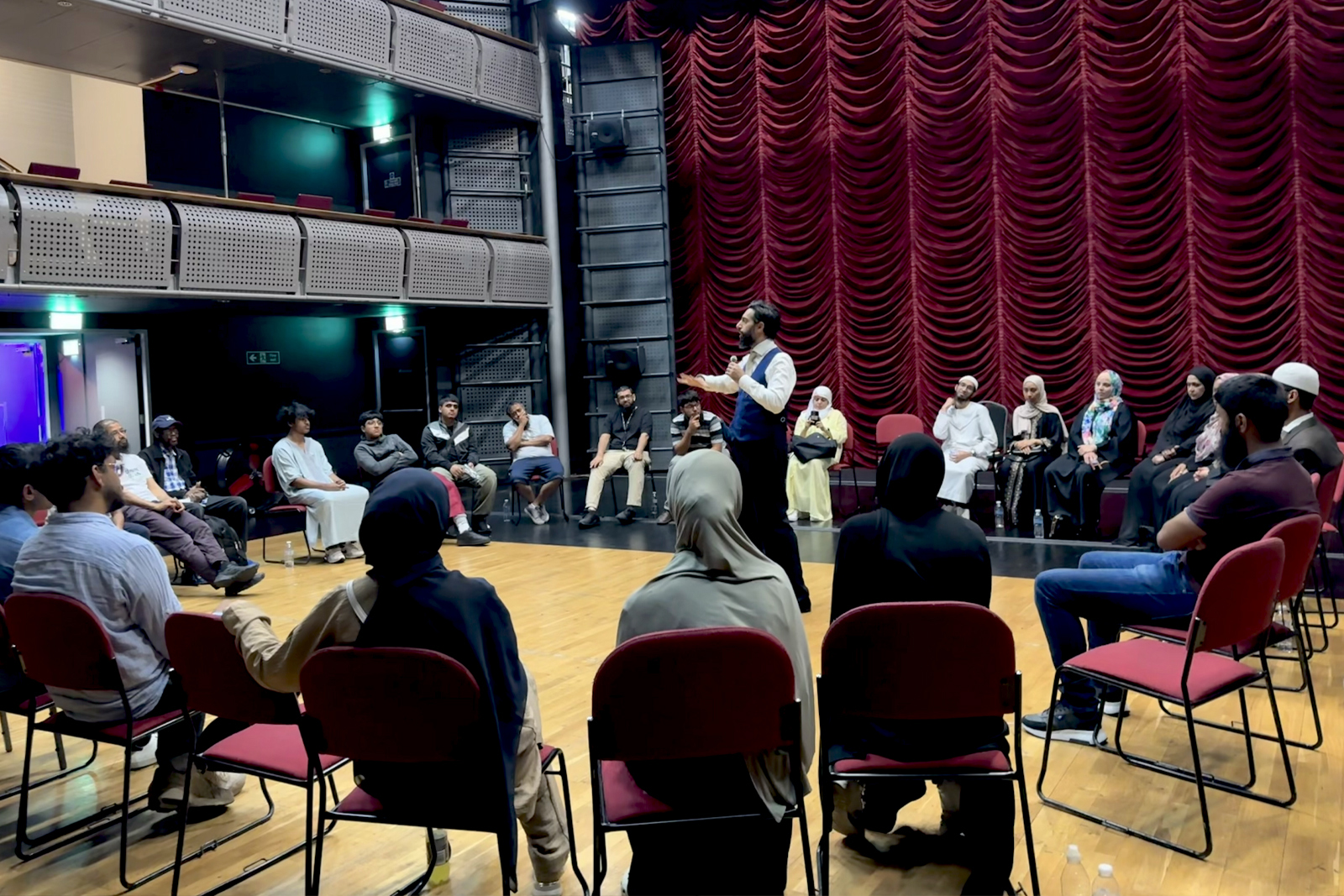
Other participants also mentioned what they felt was a lack of spaces for young Muslim adults.
“We need to create spaces for people of our age,” said 25-year-old Yassim Farouk. “I feel mosques are centred on the older generation and it is hard for us to get involved.”
Older participants echoed the sentiment.
“Our youth are never given a voice, whether it’s at home or out in the community,” said Sharmina Banu, director of the Hawaa Network — a Muslim women’s charity. “It’s important for the older generation to create the space for the youth and include them in decision making.”
Banu, a mother of two from Newham — the east London borough where Stratford is situated, home to one of the country’s largest Muslim populations — added she hoped the event was “the beginning of more to come”.
But Shaba Ali, who has volunteered as a youth worker in the borough for over a decade, felt less optimistic.
He complained about the difficulty of recruiting other youth club volunteers and maintaining a community while the cost of living crisis and cuts to public services made youth services harder to maintain.
“I have been to a lot of events like this, organised by charities or local authorities, but they don’t always follow up on what has been said,” he said. “I hope this one will be different, but I am not holding my breath.”
The MCB is the UK’s largest representative body for Muslims, with more than 500 affiliates including mosques, schools and charities.
Hanif said the event had been inspiring. “Now that we’ve identified some key issues,” she said, “the next step is to pinpoint the most pressing and begin sourcing solutions.” Long term, she added, the organisation’s aim is to “drive lasting change and ensure that those sections of our community who need us most receive the support, advocacy, and opportunities they deserve”.
 Newsletter
Newsletter



